In the memoir “That Day at the Age of 15”, poet Hai Bang recounted: “The August Revolution succeeded, I held a Lao spear and followed the militia to the Flagpole yard in front of Ngo Mon Gate with the people of the city to witness the moment King Bao Dai abdicated. Because I was of royal lineage, at that moment I could not help but be moved when I heard Mr. Vinh Thuy say: “I would rather be a citizen of an independent country than be the king of a slave country”. At that time, the hearts of the people of Hue city were burning like fire. I dropped out of school and eagerly followed my friends to join the liberation army. On the Dong Khanh school yard, I anxiously waited for the recruitment committee to call my name”… That was the moment when the 15-year-old Vinh Ton (Hai Bang) left Hue to join the National Guard in August 1945. Since then, after 30 years and two resistance wars, the poet has never returned to his homeland.
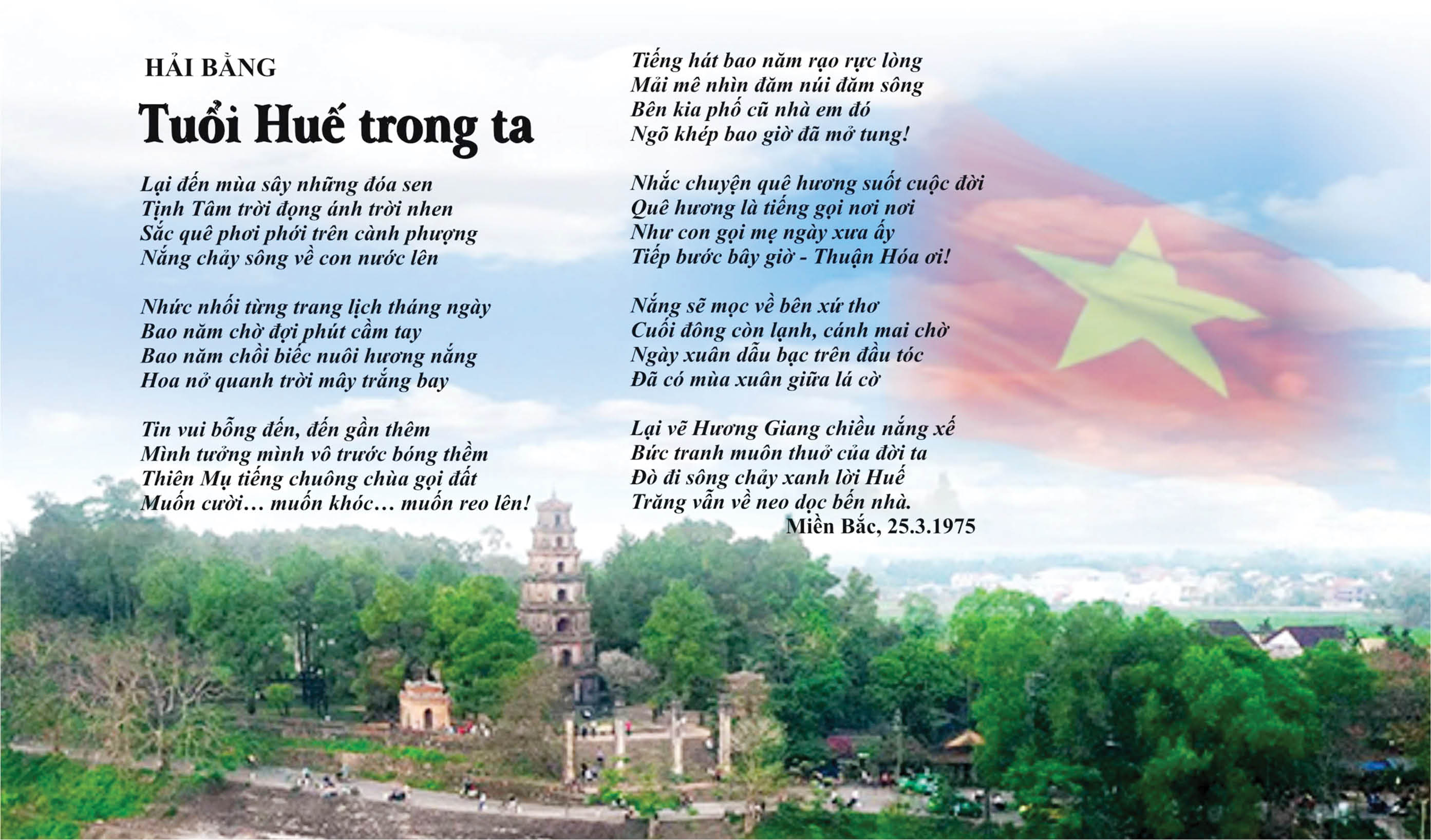 |
In the middle of the summer of 1952, poet and artist Tran Quoc Tien prepared to leave the Ba Long war zone to return to the 95th Regiment for the campaign season. While waiting for the march, the poet composed the poem “A Hundred Years of the Old Forest” (Tran Quoc Tien also composed a poem with the same title). Then the two put the poem in an urn and buried it on the riverbank before saying goodbye to the war zone with so many memories. In the poem “A Hundred Years of the Old Forest”, poet Hai Bang wrote:
This afternoon I turn twenty years old.
Far from home, go romantic with the forest
The gun is passed from hand to hand, waiting for years.
On the top of the pass, we walk in the air.
As the resistance war continued, time passed by. 10 years, 20 years, 30 years... the day Hue was liberated was approaching, the moment of hope to return to the homeland, and I was moved with emotion along with the words.
The poem “Hue Age in Me” begins with the symbolic and concrete space and time of the lotus season in Hue in the summer, “the season of blooming lotus flowers”, of “the radiant colors of the countryside on the royal poinciana branches”, followed by images of anxious anticipation:
Painful every page of the calendar
Years of waiting for the moment of holding hands.
That waiting, that waiting seemed to be softened, arising from the reality of the day Hue was liberated, arising from the mental image: “The good news suddenly came, coming closer/ I thought I was in front of the threshold/ Thien Mu temple bells calling the earth/ I wanted to laugh… I wanted to cry… I wanted to shout!”. That emotion burst out in the space and time of the reality of nostalgia, the burning desire for the day of reunion.
Every street corner and alley was filled with people's hearts to welcome the liberation of Hue, their spirits were high, their excitement was just like that, blending with the joy of the people, especially when the author had been away from his homeland for 30 years, now it would be the time to return for reunion. That moment was really exciting, but at the time of writing the poem (in the North, March 25, 1975), the return at that moment was just an imagination, a stirring image from the words.
Each generation set out to unite the country, it was a dedication with faith and burning desire. On the day of returning to the homeland, everyone had passed half of their life, but that faith still shines with hope:
The sun will rise in the land of poetry
Late winter is still cold, apricot petals wait
Spring days though silver hair
There is spring among the flags.
From the time he left in the spring of Independence (1945) and returned in the spring of Reunification (1975), although time can be counted, the length of people’s wait for the day of reunification cannot be measured. Leaving when his hair was still green, returning when it was already gray, however, the poet was still optimistic and believed that “there was spring among the flags”, the spring of reunification…
Therefore, “Hue Age in Me” will no longer be a physical time that can be measured, but it is the timeless age of historical value that makes up the spring of liberation. 50 years later, re-reading the poem marking the moment of Hue’s liberation, the author feels moved and sad as if memories are flooding back with the years…
Source: https://huengaynay.vn/van-hoa-nghe-thuat/da-co-mua-xuan-giua-la-co-153132.html


![[Photo] Flag-raising ceremony to celebrate the 50th anniversary of the Liberation of the South and National Reunification Day](https://vphoto.vietnam.vn/thumb/1200x675/vietnam/resource/IMAGE/2025/4/30/175646f225ff40b7ad24aa6c1517e378)
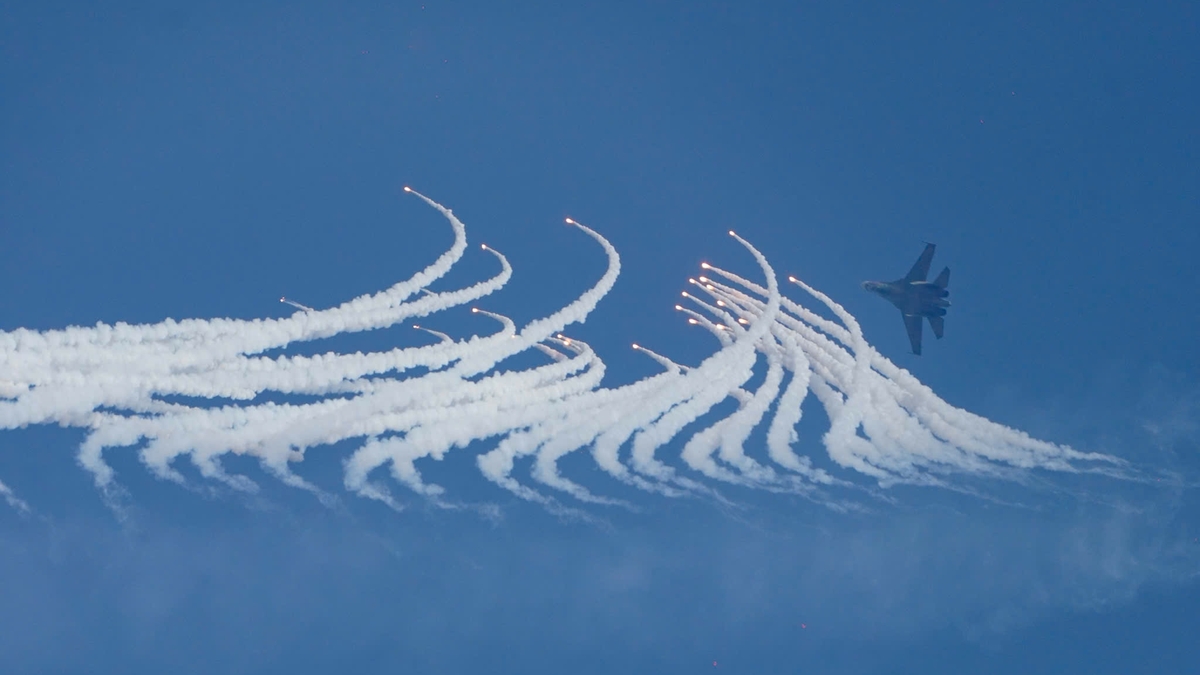
![[Photo] Performance of the Air Force Squadron at the 50th Anniversary of the Liberation of the South and National Reunification Day](https://vphoto.vietnam.vn/thumb/1200x675/vietnam/resource/IMAGE/2025/4/30/cb781ed625fc4774bb82982d31bead1e)
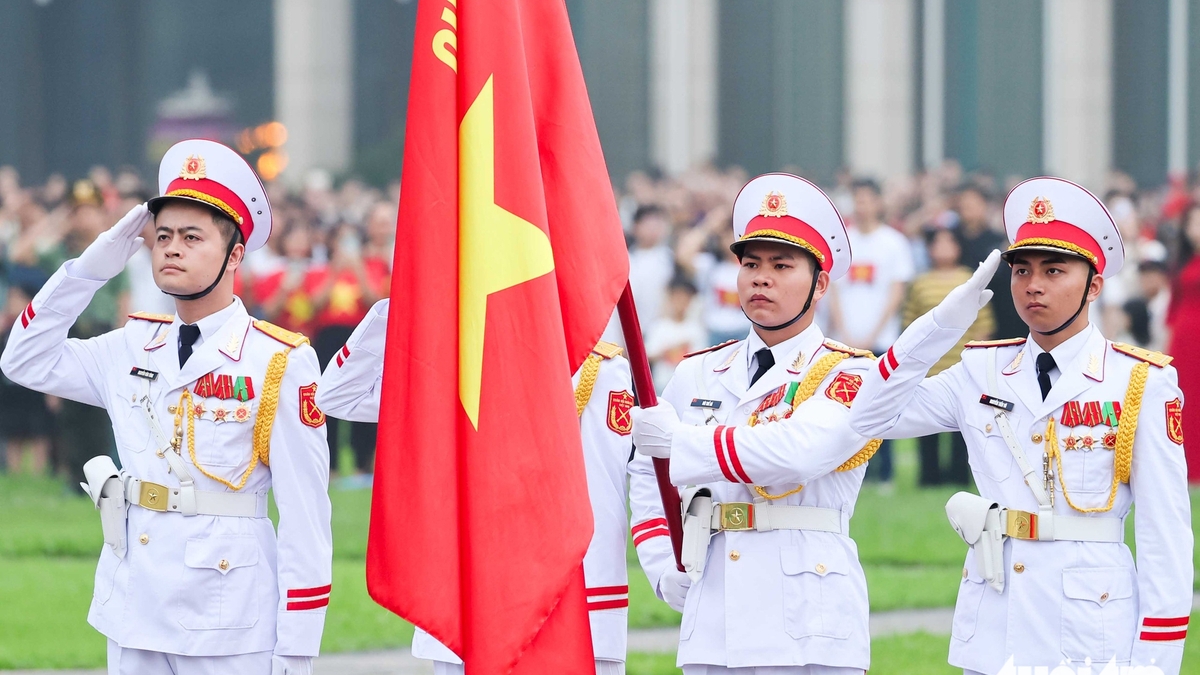

![[Photo] Chinese, Lao, and Cambodian troops participate in the parade to celebrate the 50th anniversary of the Liberation of the South and National Reunification Day](https://vphoto.vietnam.vn/thumb/1200x675/vietnam/resource/IMAGE/2025/4/30/30d2204b414549cfb5dc784544a72dee)
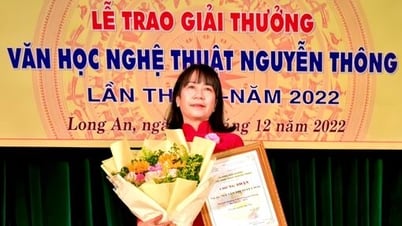

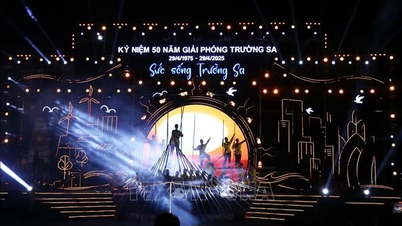







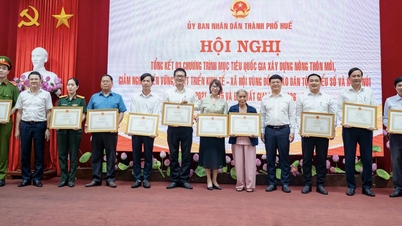















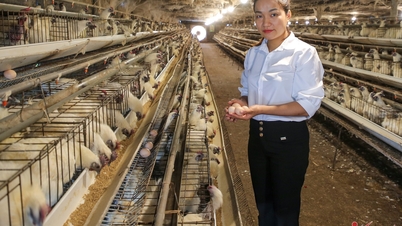


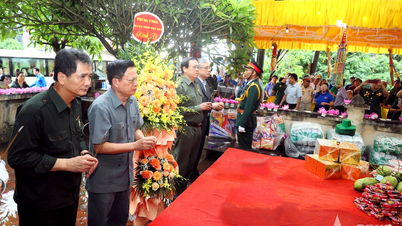
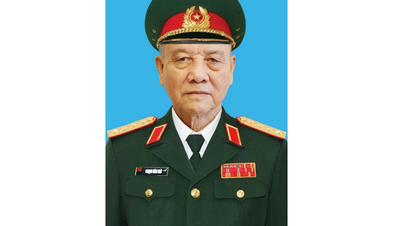






















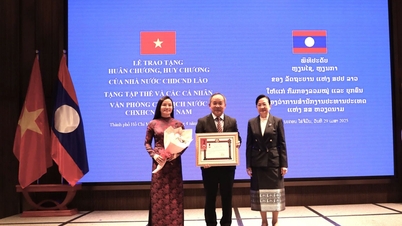





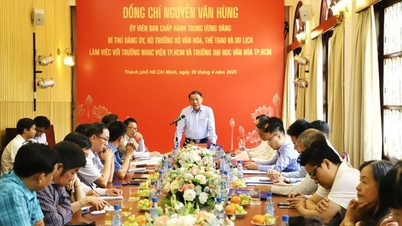


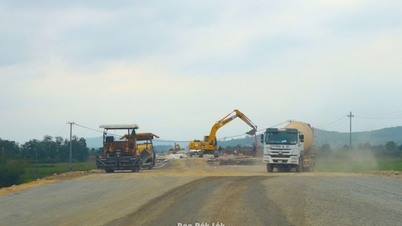





















Comment (0)